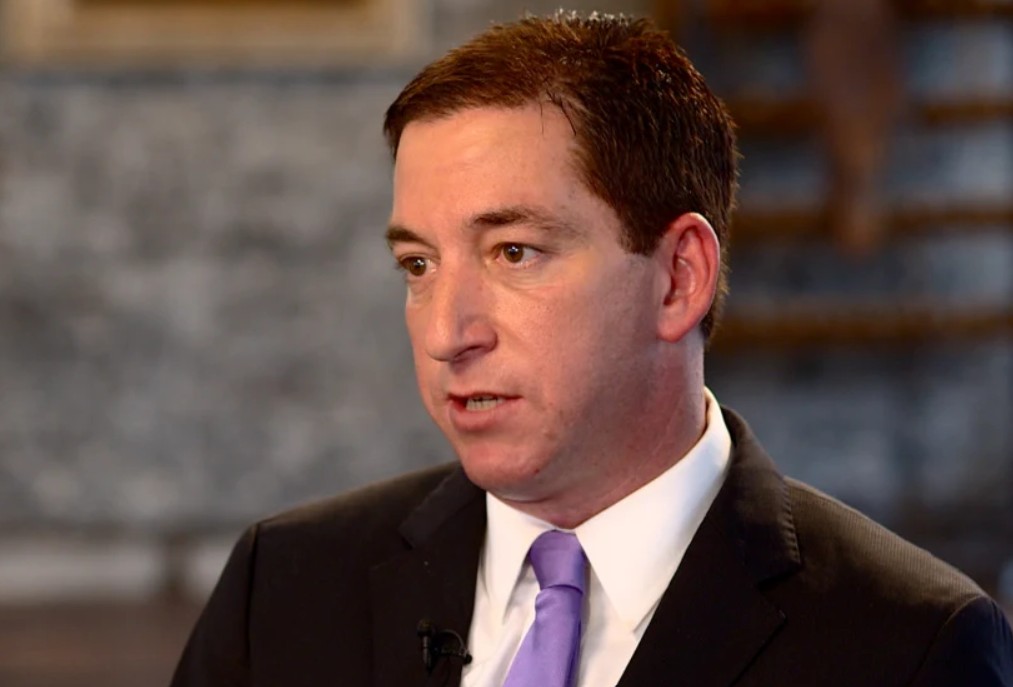Glenn Greenwald Video and Over His Alleged Ridiculous Antics
In the realm of political journalism, few figures are as polarizing and provocative as Glenn Greenwald. Renowned for his investigative reporting and bold commentary, Greenwald has built a career on challenging mainstream narratives. However, a recent viral video has sparked fresh controversy not for the substance of his argument, but for the manner in which he presented it. The video, which many have described as bizarre or even “ridiculous,” has reignited debates over Greenwald’s role in political discourse and whether his methods are effective advocacy or theatrical spectacle.
Content
The Viral Video: What Happened?
The recent viral video that stirred widespread discussion surfaced during a livestreamed political panel. In the clip, Greenwald is seen passionately denouncing what he calls the “corrupt collaboration” between media outlets and intelligence agencies. His voice rises, his hand gestures intensify, and at one point, he slams the table for emphasis. The moment, clipped and shared across platforms like X (formerly Twitter), TikTok, and YouTube, quickly gained traction not because of the content, but because of the delivery.
Glenn Greenwald’s controversial video
Uncensored leaked full video of Glenn Greenwald stirring public outrage
glenn-greenwald-full-video.mp4
Critics called the performance “overwrought,” “melodramatic,” and “borderline theatrical.” Phrases like “Glenn Greenwald doing his best performance art” and “this is a parody of political commentary” began trending. The video became meme fodder, with users dubbing over his speech with dramatic soundtracks or inserting him into mock debate scenes.
While the message warning about the erosion of journalistic integrity and unchecked state power was consistent with Greenwald’s long-standing concerns, it was his delivery that drew both ridicule and fascination.
Who Is Glenn Greenwald?
Glenn Greenwald is an American journalist, author, and former constitutional lawyer best known for his work with whistleblower Edward Snowden in 2013, where he played a central role in revealing the NSA’s global surveillance programs. His reporting earned him the Pulitzer Prize for Public Service and made him a prominent voice in the world of investigative journalism.
Greenwald co-founded The Intercept in 2014 but left the publication in 2020 over claims of editorial censorship. Since then, he has focused on independent journalism, publishing his work on platforms like Substack and appearing regularly on various podcasts and TV programs. Greenwald is known for his outspoken criticism of both political parties in the U.S., which has earned him admiration from some and scorn from others.
His public persona is marked by a no-holds-barred approach to debate. He often engages in heated exchanges, challenges established narratives, and doesn’t shy away from controversial topics. This rhetorical style has won him a devoted following but also led to frequent accusations of sensationalism.
Public Perception: Ridiculous or Righteous?
The response to the video was divided sharply along ideological lines. Critics labeled it “lố bịch,” a Vietnamese term roughly translating to “ridiculous” or “absurd.” To them, Greenwald’s mannerisms overshadowed his message, turning what could have been a compelling argument into a spectacle. They argued that his dramatic presentation undermined his credibility and made him look more like a provocateur than a serious commentator.
One commentator tweeted, “I used to respect Glenn Greenwald’s journalism. Now he looks like a parody of himself.” Others accused him of using drama to mask weak arguments, claiming the performance was more about generating clicks than engaging in meaningful dialogue.
On the other hand, supporters rallied behind him, asserting that the criticism was unfair and politically motivated. “When a journalist raises their voice, suddenly they’re ‘unhinged.’ But when politicians lie calmly, they’re ‘credible’?” one user posted. Fans argued that the emotional delivery reflected genuine frustration with systemic corruption and that Greenwald’s passion should be seen as a strength, not a liability.
This divide reflects a broader cultural tension: where is the line between compelling advocacy and performative outrage? And who gets to draw it?
Media and Influencer Reactions
Mainstream media responses to the video varied. Some outlets chose to ignore it, while others framed it as part of a larger pattern of Greenwald’s increasing detachment from traditional journalistic decorum. A headline in The Daily Beast read: “From Pulitzer to Punchline? Glenn Greenwald’s Wild Rant Goes Viral.”
Meanwhile, political influencers and social media personalities jumped into the fray. Right-leaning commentators applauded Greenwald for “calling out the deep state,” while left-leaning figures mocked the video as “self-aggrandizing political theater.”
Popular YouTubers created reaction videos, and even late-night comedy shows referenced the clip, poking fun at the melodramatic tone. Memes exploded across the internet, with one viral image showing Greenwald mid-speech, Photoshopped onto a Shakespearean stage with the caption: “Alas, poor democracy!”
Greenwald’s Response
Never one to shy away from controversy, Greenwald responded to the criticism directly on his Substack and social media. He posted a follow-up video stating, “The reaction to my expression of outrage only proves the point I’m criticized not for being wrong, but for being loud.”
He argued that in an era of apathy and media complicity, raising one’s voice is not only appropriate it’s necessary. “If people are more disturbed by tone than by the substance of what I’m saying, then they’re missing the forest for the trees,” he wrote.
Greenwald also took aim at what he called “elite liberal gatekeepers” who prioritize civility over truth. In his view, the media’s obsession with tone policing is a tactic used to suppress dissent and marginalize independent voices.
Impact on His Image and Career
In the short term, the viral video has further polarized opinions about Greenwald. Some view it as a turning point that confirms his shift from journalist to performance artist. Others see it as a rallying cry that reinforces his reputation as a fearless truth-teller.
His audience on independent platforms has actually grown in the wake of the controversy, suggesting that the spectacle may have helped him reach new viewers. However, critics argue that such gains come at the cost of journalistic credibility.
This incident adds to a growing list of Greenwald’s public confrontations, suggesting a trajectory away from traditional investigative journalism and toward a more combative, media-personality role. Whether this helps or harms his long-term influence remains to be seen.
Broader Implications
Greenwald’s viral moment raises important questions about the nature of political communication in the digital age. In a landscape dominated by clips, memes, and outrage cycles, is it possible to get serious messages across without resorting to theatrics?
Moreover, the incident highlights the blurred lines between journalism, activism, and entertainment. As platforms reward emotional engagement over nuanced discussion, even seasoned journalists may feel pressure to perform.
This also speaks to the role of personality in shaping public discourse. In today’s media ecosystem, the messenger often matters more than the message. For better or worse, figures like Greenwald are navigating this terrain in real time, testing the boundaries of what political commentary can and should look like.
Glenn Greenwald’s viral video may be remembered less for what he said than for how he said it. Whether one sees it as a bold stand against media complicity or a ridiculous display of self-importance depends largely on one’s political lens. What is clear, however, is that Greenwald remains a lightning rod for controversy unafraid to provoke, challenge, and yes, sometimes perform.
In a world where substance often competes with spectacle, Greenwald’s moment underscores a timeless dilemma: how do we ensure that urgent truths are heard in an age obsessed with how they’re delivered?
Daily Hot News -Logan Paul Wife Nina Agdal Viral Video and Truth Behind
Alana Flores Video and Privacy in the Digital Age
Stefon Diggs Video and Over Alleged Pink Substance
Jax Taylor Ring Camera Video Revealed by Lala Kent
Macron Shove Video Uproar: Viral Video of Macron and Wife
Daisha Baby Shower Video and Brutally Attacked
Eugenia Cooney Collapse Video Sparks Outcry



